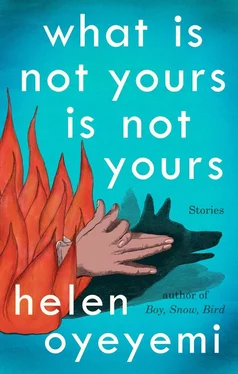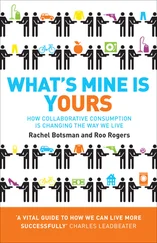—
FOR MOST of their lives she and Jacob had both been afraid of the same thing: not being deemed worthy to share a home with a family. They were both foster kids. Nobody ever said you were unworthy, not to your face, but there was talk of adults and children not being “the right fit” for each other. The adults were the ones who decided that, so when “fit” was brought up they were really talking about the child. This left Jacob, and Jill, and Lena (Jill’s onetime foster sister during an idyllic but brief lull) ever-ready to have to leave a home, or to be left. Jacob became extremely capable, a facilitator, someone you wanted around because he smoothed your path — whether through his skill as a polyglot or his general aura of “can do.” Lena was pretty much lawless, used to wear a pair of sunglasses on the back of her head and a badge that said HELL, which she tapped whenever anyone asked her where she was “originally from,” and she was so clearly somebody that you could trust with your life that reform always seemed possible for her. Jill advanced an entirely false impression of herself as biddable and in need of protection. Ah, I’m just a little chickadee who won’t survive the winter unless I nestle under your life-sustaining wing. Far from original, but it worked.
—
THEY WENT OUT to dinner at their favorite restaurant — the benefits were twofold: delicious chargrilled broccoli plus the discussion of Jacob’s question without having to bring it into the house with them. Jacob proposed sacrificing their summer holiday to a project of his, an idea he was developing as part of his work as a bereavement counselor. So that was it, the question he’d been building up to for weeks. Do you mind giving up your holiday to test-run my project? She was embarrassed that he felt he’d had to work up to asking her this; it was a question that would’ve been easily raised and just as easily settled with an unselfish partner. Regarding him her support was in fact unconditional and to date she’d thought she adequately expressed this; now she fought demoralization as she heard him out. His project focused on a particular type of experience that a large number of his clients reported having undergone. “To oversimplify the descriptions I’ve been given, this experience presents as… an implosion of memory. And as the subjects drift through the subsequent debris, they calmly develop a conviction that they do not do so alone. These presences aren’t reported as ghostly, but living ones… minutes, sometimes hours when the mourner feels as if they’ve either returned to a day when the deceased was still alive or the deceased has just arrived in the present time with them… and what’s interesting about these lapses people experience is that most of them happen under fairly similar physical conditions.”
“So you’ve put together some sort of program that induces this feeling of… presence?”
“Well, that’s what I’m aiming for. Of course it’d only be for mourners who need that feeling from time to time and can’t make it happen by themselves. We’re calling it ‘Presence.’ And now we’ve got some funding…”
“You clever thing.”
“Really it was Vi who got the funding together. She’s a bit of a whiz at that. Lots of international contacts.”
“I’m sure that’s only the tip of Vi’s iceberg.” She made a quick attempt to estimate the extent to which new information concerning the relationship between Vi and Jacob might shake her. Sam had had his affairs, and Jill had come to an understanding of them as a form of boundary setting, actions taken against a fear that any one person could or did know “everything” about you. Jill was never more aggravating than when she got busy understanding things, and yet these rationalizations of hers might not be such a big problem this time around, as she was finding that the thought of various deep, sweet secrets between Jacob and Vi had something of a mechanical effect on her. Air seeped out of her and very little came back in — she breathed as though subject to strangulation and sat on her hands to suppress tentacle-like tendencies such as thrashing about, and clinging. The more Jacob told her about the testing of his program, the more she wondered if her first misgivings hadn’t been right after all. He was genuinely willing to be a guinea pig for his own prototype, she could see that, but maybe this was also Leaving Jill, Phase 1: Practice.
—
“OK, I’LL HELP. But since I don’t know anyone else who’d ask me to spend two weeks pretending he’s no longer in the world, tell me this first: Are you really not thinking about leaving me?” she asked.
That glint of amusement again. “Get this through your head, Jill Akkerman: I’m not leaving you. And you — are you leaving me?”
“I’m not leaving you, Jacob Wallace.”
She watched him put her expression, posture, and phrasing through his lie detector. She passed. His gaze lost intensity.
“Remember that psychologist who said we had an unhealthy dependence on each other?” asked the boy who’d learned Korean along with Jill and the couple who’d eventually adopted her. Her parents had wanted to have a new family language, and Jacob had learned too, so that he could be a part of that family. He’d been an honorary Akkerman for over half his life now.
“Yeah… we owe our careers to him, I think. He made us want to see what his job would be like if someone did it properly.”
“He might have been right, though,” Jacob said.
“Oh?”
“I just mean… if it was healthy, it might be easier to give up.”
She poured him more wine and they raised their glasses to unhealthy dependencies. Then he told her the specifics of their test for Presence. They needed two bases. Jacob would stay at their Holland Park house with the projection of Jill’s presence and Jill would need to stay at her flat in Catford, a parting gift from Max that she would’ve rejected if that hadn’t meant starting another fight with him. Jill’s current tenants were away in Prague until the autumn and when she called them to ask if they were all right with her being in the flat for a couple of weeks they said it was fine. “Just don’t break anything…” Radha said. Workmen came to the flat to make some adjustments to wiring and to secrete the contents of what looked like gas canisters into the walls. Jacob gave her a full list of the substances she’d be breathing in. While they were all substances found unaltered in wildlife, mixing them was bound to be a different matter.
“This is essentially going to be like an acid trip that lasts for two weeks, isn’t it?”
Jacob only said: “Not really. You’ll see.”
After the necessary alterations had been made to both houses Jill and Jacob recorded three conversations — the purpose of which was to place the mourner in the midst of a familiar exchange, the kind we’re always having with friends and family, repeating ourselves and repeating ourselves, going over what we know about each other to prove that we still know these things and will not, cannot, forget them. Vi set up a camera at Jacob’s office and filmed Jacob’s face as he and Jill repeated the conversation they’d had on the Tube about whose idea it had been to get married. They talked about their earliest impressions of each other too, and by the time it came to filming their third conversation they couldn’t think of anything else they wanted to say, so they kept it brief. Sex returned to the Akkerman-Wallace bedroom — to every room in their house in fact, their sweat mingling in the summer heat.
A day later Vi provided them with a transcript of what they’d said in each of the conversations they’d filmed in Jacob’s office, and Jill was irritated by this (was this Vi’s way of telling them to make certain that their claims matched up with what they really felt?) until she recalled that they were going to be filming all three conversations again in her own office, with the camera focusing on Jill’s face this time. They had to make an effort to get the conversations in sync. If she or Jacob couldn’t “get hold” of each other in their separate bases they were to put headphones on and reengage in the conversation, responding to each other’s words, saying their own parts as they remembered them.
Читать дальше












